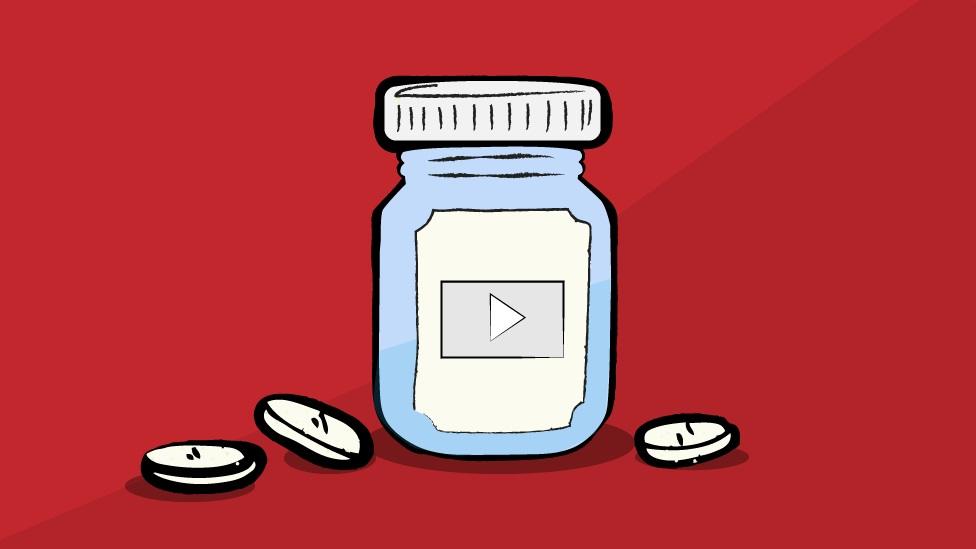Celery Juice: The big problem with a viral Instagram 'cure'
- Published
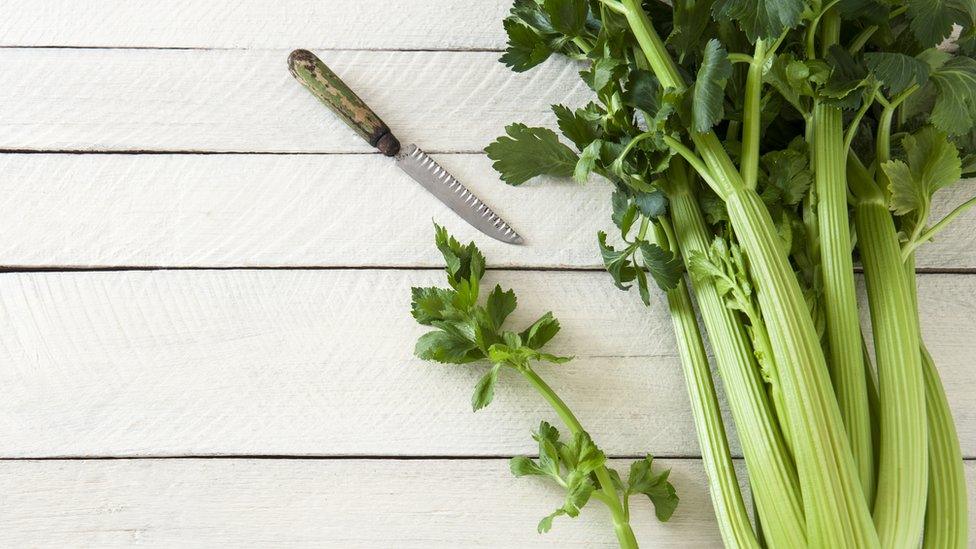
An Instagram influencer with millions of followers and a host of celebrity endorsements claims that drinking celery juice can cure chronic illnesses.
But he doesn't have any medical qualifications, and doctors say many of his claims about celery and other vegetables and fruits aren't backed up by science.
If you spend a lot of time on Instagram, you may have come across posts of people sipping on a green beverage - celery juice.
While it might not be to everyone's taste, it is certainly a drink of the moment. Google Trends statistics, external show relatively little interest in celery juice over the past few years, until a growing wave of interest culminated in a spike in searches earlier this year.
It's certainly not bad for you. In its raw state, celery juice is low in calories and contains a decent amount of vitamin K, external along with traces of other key vitamins and minerals.
But one of the most popular advocates of drinking the pulp of this bland green vegetable has made much bigger claims about celery's health benefits - claims that experts say have little or no scientific backing.
Doctors also worry that such advice might stop people from obtaining help from qualified medical professionals.
How did the trend start?
The influencer in question is a man who calls himself the "Medical Medium". His real name is Anthony William.
He has more than 2 million Instagram followers and another 3.4 million on Facebook.
His website lists endorsements from numerous celebrities, including tennis star Novak Djokovic. He's appeared on TV shows including Keeping Up with the Kardashians. And he's written for Gwyneth Paltrow's lifestyle website Goop.
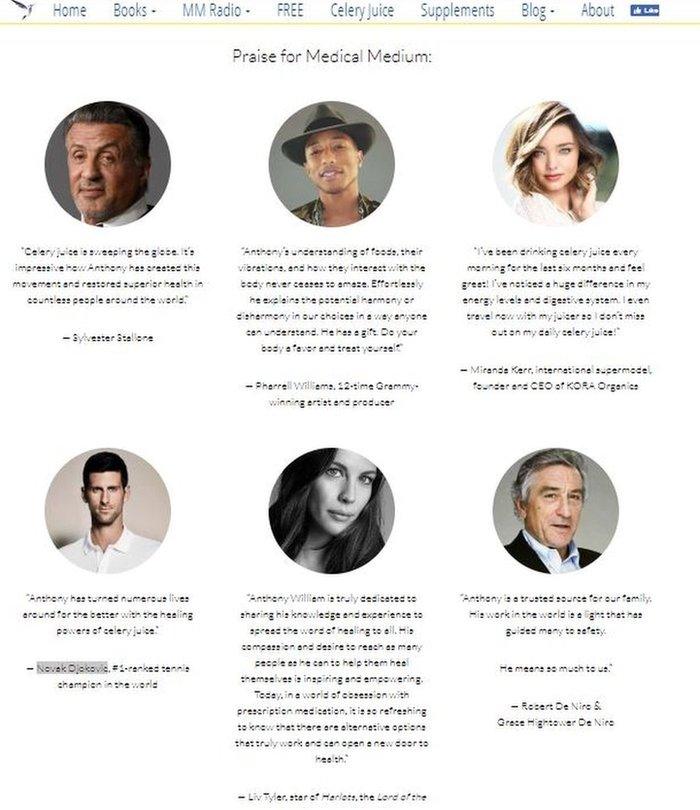
The Medical Medium website includes a number of big-name celebrity endorsements.
His social media pages include a range of claims including "Celery helps cure fibromyalgia" and "Raspberries remove viral debris from the bloodstream."
His website even claims that celery juice can provide relief from illnesses including cancer and diabetes.
The site and the Medical Medium social media accounts are the core of a business which offers books that have hit The New York Times bestseller list, external - and which includes profitable affiliate marketing links.
But medical professionals are far from convinced by his claims.
Dr Austin Chiang, a gastroenterologist in Philadelphia who makes videos on his own YouTube channel, external, told the BBC that claims made by Medical Medium are not backed up by science and "could potentially be harmful for our patients."
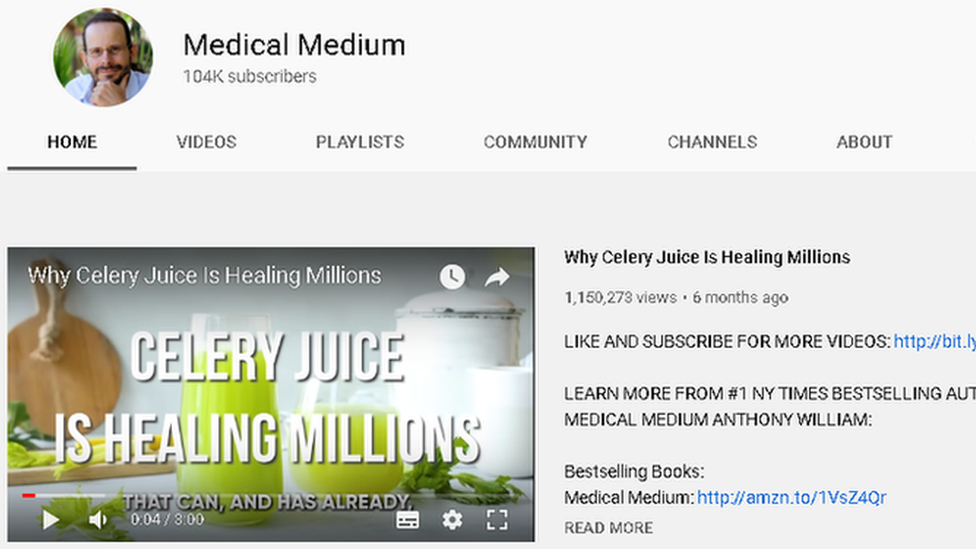
Anthony William calls himself the 'originator of The Global Celery Juice Movement.'
Advice from spirits
Despite his nom de plume, Anthony William freely admits he has no medical training. Instead, he says he gets his medical information from "a spirit."
In one of his YouTube videos he says: "When I was four years old, I heard a voice: 'I am the spirit of the most high. There is none above me but God himself.'"
He describes in the video how, at that young age, the spirit told him his grandmother had lung cancer.
Online, he talks of "secrets that have not yet surfaced about how to finally heal", and says he can "reveal truth about chronic illnesses you won't hear anywhere else."
Alongside this talk of supposed cures, there's a disclaimer buried in the terms of use on his website.
It says that none of the information he provides should be considered "a promise of benefits, a claim of cures, a legal warranty or a guarantee of results to be achieved."
The disclaimer also states that his advice isn't intended as a substitute for advice from health care professionals. But that's a different story from the one he tells in his videos.
In one, he says: "I can give you clarity on diseases that doctors often misdiagnose or treat incorrectly, or they just give up on and label mystery illness."
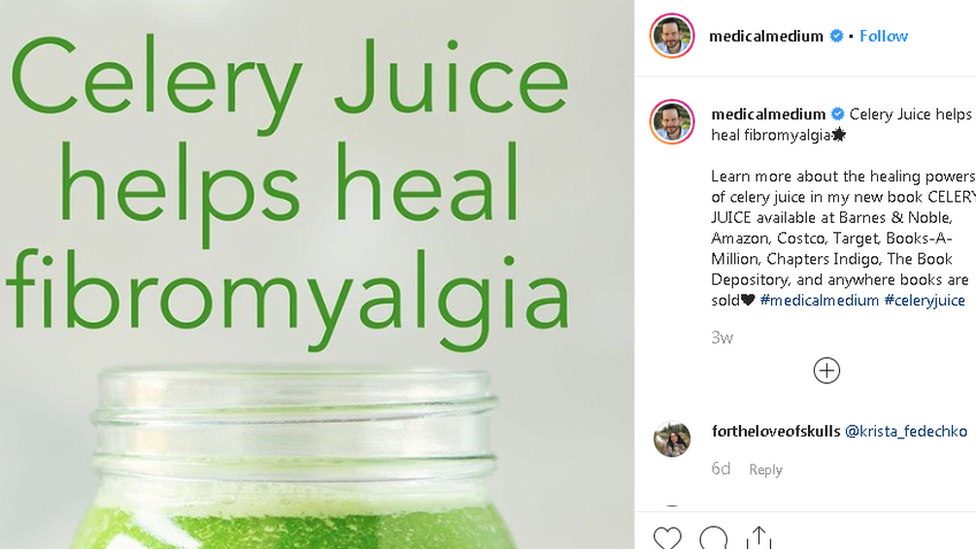
Doctors say Medical Medium's claims are not based on science
What do doctors think about this?
"For those of us who practice medicine day in and day out we can see that what he is putting out there really is not based on any form of evidence," says Dr Chiang.
"We think that this is really contributing to the misinformation out there and could potentially be harmful for our patients.
"I think that part of what makes those accounts attractive is that when you eat fruits and vegetables, and adopt a healthy lifestyle, you probably will experience some of those benefits," he says.
But Dr Chiang says that relying solely on online medical advice from unqualified influencers has the potential to be extremely dangerous.

Dr Austin Chiang wants more qualified medical professionals to use social media effectively
"Those of us working in the health care industry have seen patients come through the emergency room or show up in our clinics too late because they've subscribed to some sort of home remedy that hasn't been based on any science," he says.
As an active YouTuber and Instagram user himself, Dr Chiang is concerned more generally by the amount of medical misinformation available online. He has set up a non-profit, the Association for Healthcare Social Media, external, in order to encourage qualified doctors to engage with the public on social media.
"That's where a lot of our patients and our communities are getting their medical information from these days," he acknowledges.
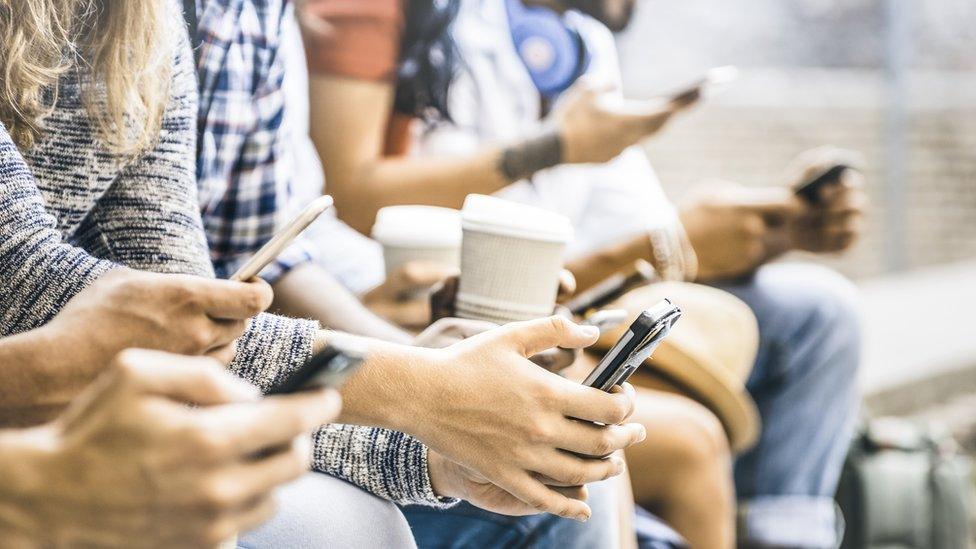
Dr Chiang's Association for Healthcare Social Media wants to reinvent the sharing of healthcare information on social media
Dr Chiang also says that there "has to be a better way" to vet individuals online who are publishing medical information.
"Some sort of verification process might be helpful," he says. "A lot of these social media platforms are solely verifying based on the fact that these individuals have large media presences."
Verification processes vary from platform to platform, but most big social media outlets - including Facebook, Instagram and YouTube - do not check specific qualifications or the truth or reliability of posts or videos.
Instead they check that people a) are noteworthy and b) are who they say they are.
How did Medical Medium - and the social media companies - respond?
Medical Medium did not respond to the BBC's requests for comment.
YouTube said: "Misinformation is a difficult challenge, and we have taken a number of steps to address this including showing more authoritative content on medical issues, showing information panels with credible sources, and removing ads from videos that promote harmful health claims."
They said that Medical Medium's videos "don't encourage dangerous activities that risk serious physical harm or death", and therefore do not violate YouTube's policies.
Facebook, which owns Instagram, said that they are working with experts to tackle health-related misinformation. If a fact-checker rates a health-related hoax as false, the company says, they will take steps to reduce how many people see that hoax on Instagram.
Representatives for Mr Djokovic did not respond to a request for comment.
Listen to the full story on the BBC World Service: The problem with the viral celery juice 'cure'
Blog by Ione Wells, external
Follow BBC Trending on Twitter @BBCtrending, external, and find us on Facebook, external. All our stories are at bbc.com/trending.
- Published13 September 2019
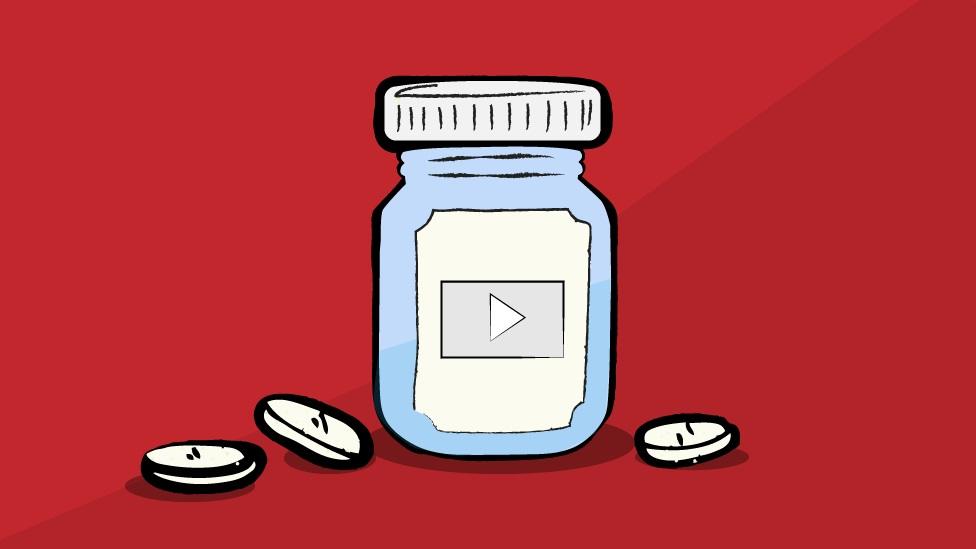
- Published13 September 2019
